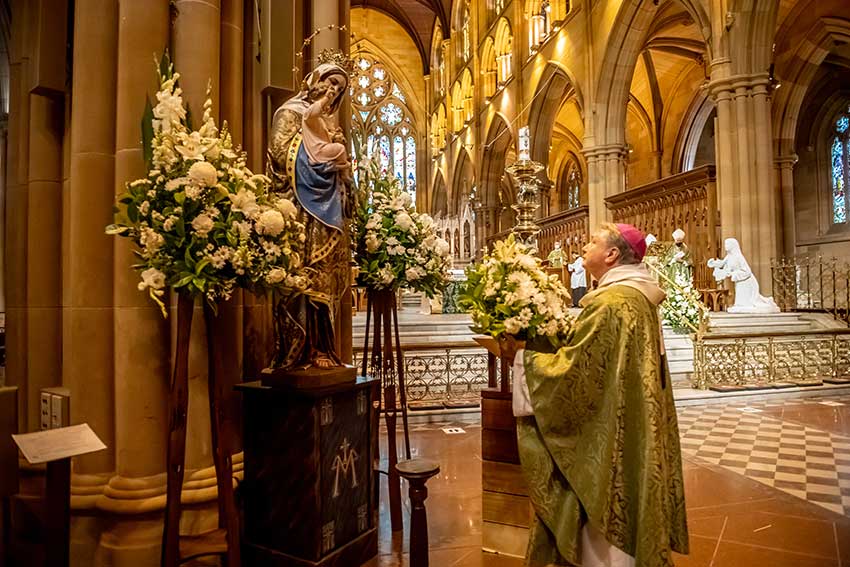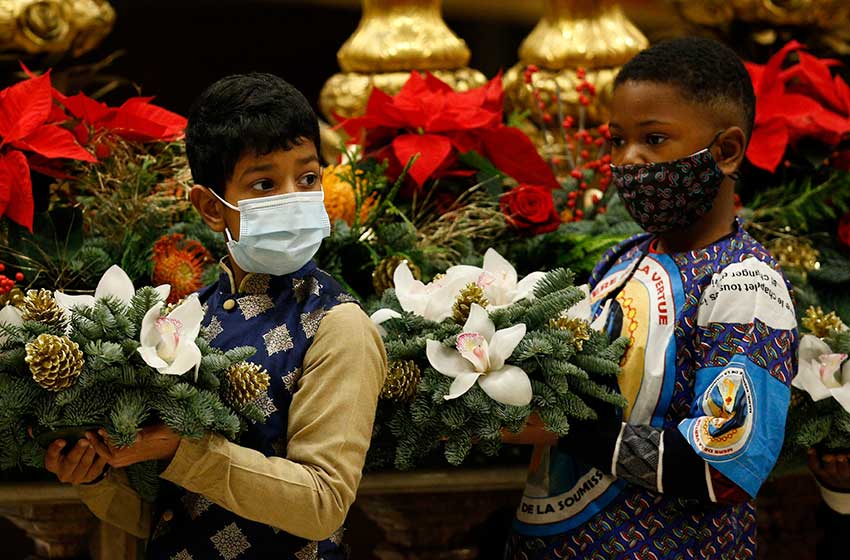
When I was planning my wedding, I had a very small budget, and any time I could get away without paying for something, I did.
Borrowed music, homemade cake, amateur photos. I remember carelessly telling the florist that I wasn’t too worried about flowers for the church, because there always seemed to be flowers there already.
He tactfully explained to me that the reason for this was that other people had put them there—people, in fact, who had been married in that church the previous Saturday, and had purchased flowers and decorated the church with them for that purpose.
Oh! All my life, I had been going to Mass and seeing fresh flowers every week, and it never once occurred to me to wonder how they got there.
“So I bought some flowers. I didn’t spend very much, but I did purchase a few pots of flowers for the side altar, and a few stems for the front, and of course a nice bouquet for myself to carry.”
Without realising I was thinking this way, I halfway believed that I was the main attraction at this church, and that it was just sitting there, flowers and all, waiting for me to show up and enjoy them.
So I bought some flowers. I didn’t spend very much, but I did purchase a few pots of flowers for the side altar, and a few stems for the front, and of course a nice bouquet for myself to carry.
This memory came back to me today, as I happened to be in church (although not the same one) for a rare daily Mass, and the reading was a letter from Paul.
Poor Paul, even at that late date, was still a little shocked that the Christians in his care were not… better.
They weren’t acting, in fact, any different from anyone around them. He comes right out and tells them he is trying to shame them for their behavior.

He reminds them of their past life, and of the baptism that marked the beginning of their new life, and how awful they used to be. And now… they’re supposed to be different! Get it together, guys! Remember who you are.
I’ve been hearing several Catholics lately expressing how much they’re struggling with something they notice: They’ve been hearing all their lives that the graces they receive in the sacraments should transform them.
And yet they look around them, and their fellow Catholics are very clearly no better—no kinder, no more generous, no more willing to make personal sacrifices, no more gentle—than any random agnostic or atheist or pagan they might happen to meet
If the Gospel is true, then why isn’t it blindingly obvious when someone is a Christian?
There is a certain amount of comfort in realising that this is a very old problem—one dating back to the absolute babyhood of the church, as the Pauline epistles demonstrate—but that only takes you so far.
“Grace is the kind of thing that only transforms people if they want it to, and if they’re willing to be transformed over and over again …”
To return to my initial point, you spend your whole life going to church, and it always looks pretty, and you never really think about how it gets that way.
Until one day you’re planning your own special day, and you realise the church looks empty and bare. Catastrophe! What to do! Somebody do something!
So guess what? It turns out the very one who’s in charge of making the church look good is Y-O-U. Nobody else.
Grace is the kind of thing that only transforms people if they want it to, and if they’re willing to be transformed over and over again, with constant conversion of heart.
It’s very hard work. But there really is no other answer. If you think the church ought to look special, then you need to bring the flowers.
